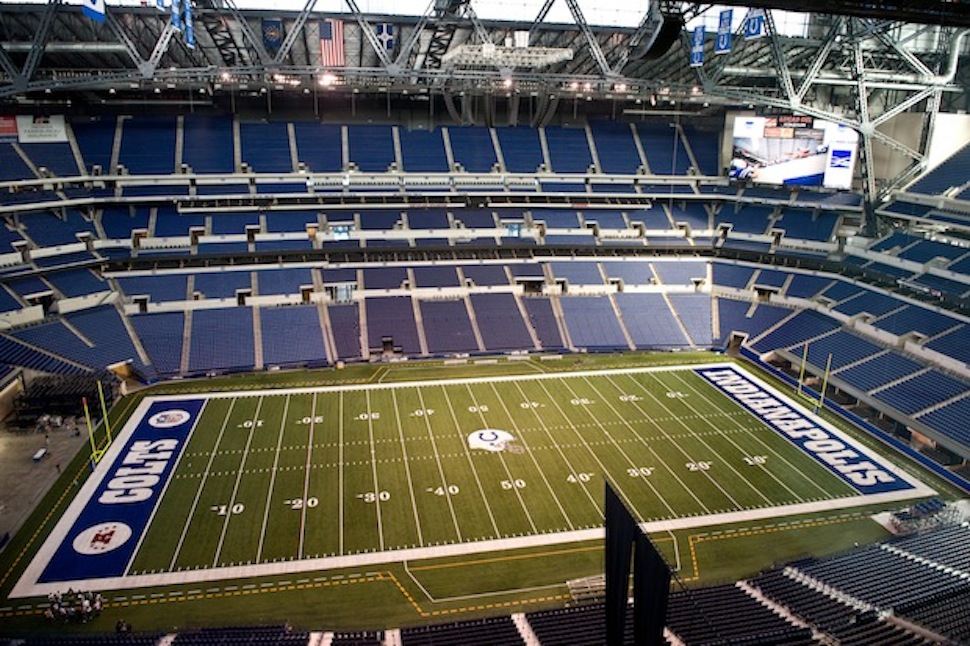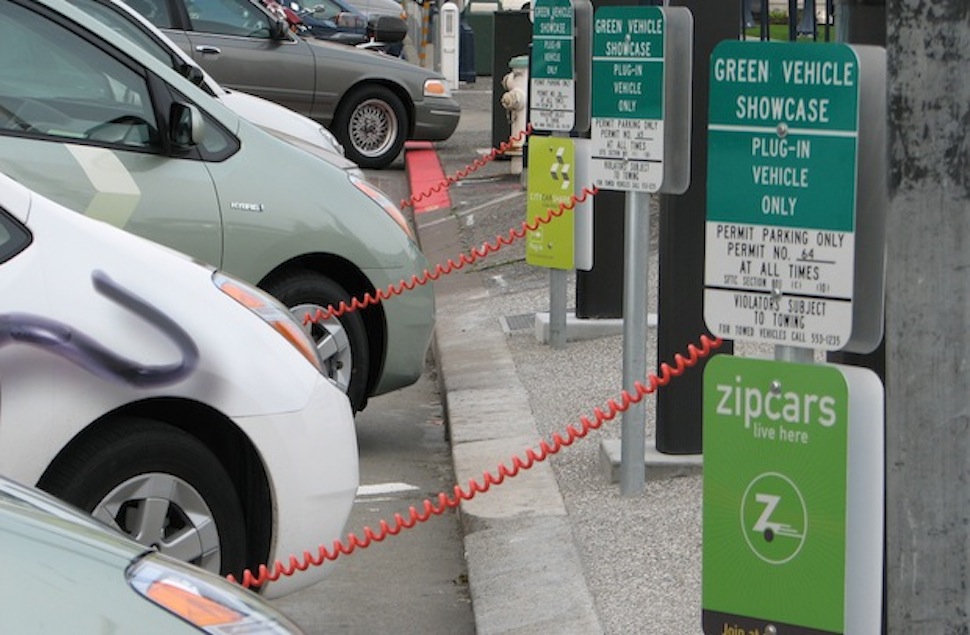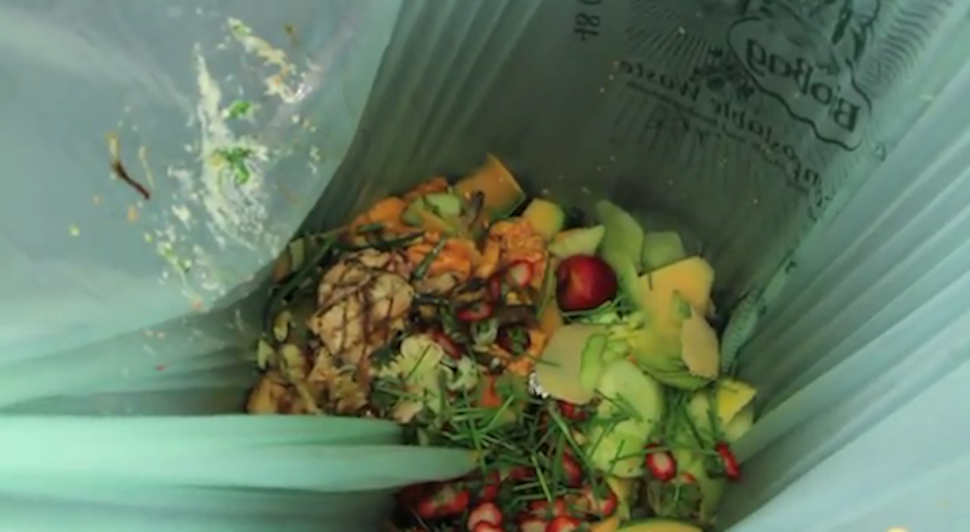
It’s that time a year again. The Super Bowl is almost upon us, which means it’s time to pick your favorite team (it’s Giants vs. Patriots), whip up some healthy snacks and watch the year’s most innovative commercials.
This year, Super Bowl XLVI (or 46, if you don’t do Roman numerals) is being hosted in Indianapolis, and the city, along with the NFL, is doing its part to make this the greenest Super Bowl ever. Here’s how:
1. Playing in an Environmentally-Friendly Stadium
Indianapolis has done a lot to make Lucas Oil Stadium, home of the Colts, a green place to play. The building has a retractable roof, a CPI lighting system to utilize natural light, and “Big Ass” fans designed to move air with minimal energy consumption. Along with the Indiana Convention Center, the stadium recycles tens of tons of aluminum, plastic, glass and cardboard each year, and implemented recycling programs in other sports venues in the city. The stadium also purchases supplies in bulk, and its parking lots are swept, not sprayed, to conserve water.
2. Offering Green Options to Fans
The Indianapolis Super Bowl Host Committee has also participated in greening the Bowl. As part of the organization’s “1st and Green” plan, the city implemented “Project Plug-IN” along Georgia Street, the heart of Super Bowl Village. This project helped fund two charging stations for electric cars, which should be operational in early February. Hopefully this means that eco-friendly fans with electric cars can drive to the game and not have to worry about where to recharge their batteries.
3. Composting
Another “1st and Green” project in the works: a composting pilot program, set to take place during Super Bowl week. According to the website, “The JW Marriott hotel, which will house the Media Center for the 2012 Super Bowl, is partnering with GreenCycle, Republic Waste Services, the Indiana Department of Environmental Management, the Indiana Recycling Coalition, and the 2012 Indianapolis Super Bowl Host Committee to participate in a composting pilot project during the week of the Super Bowl. Food waste scraps from the JW Marriott kitchens will be collected in compostable bags and conveyed to the GreenCycle facility, where they will be mixed with wood chips and converted into nutritious compost instead of being sent to the landfill.”
4. Utilizing Renewable Energy
For the past 18 years, the NFL has been working to green the sport, and this year, it’s more eco-friendly than ever. The NFL and Super Bowl Host Committee have greened the power at the six major Super Bowl facilities. Their press release explains it all by saying “everything from the computers in the Motorola Super Bowl XLVI Media Center to the lights that shine down on the teams as they compete during Super Bowl will be powered by green energy.”
Green Mountain Energy Company is supplying the power, which will be generated by windfarms in North Dakota; this will save more than 14,000 tons of greenhouse gas emissions normally associated with the Super Bowl and its festivities. According to NFL Environmental Program Director Jack Groh, “Green Mountain Energy Company has helped us reduce the overall environmental impact of Super Bowl activities. Together, we have been able to expand the way we address greenhouse gas emissions and leave a permanent benefit to the host community.”
5. Giving Back
Using renewable energy isn’t the only eco-friendly step the NFL has taken. Years ago, recycling bins were added to stadiums, and today, the league’s green efforts are much bigger. Leftover stadium food is donated to food banks (one Super Bowl generated more than 93,000 pounds of food). Supplies and equipment used in the big game are recovered and reused, a value Groh places at $250,000. And for the past seven years, the NFL has participated in urban forestry, planting 1,000 trees in each host city.
We can expect even more from next year’s Super Bowl. New Orleans will host the 2013 event, but the NFL made them work for the honor. For the first time ever, potential host cities had to submit an environmental plan with their bid. “The return on investment for us can be as much as 600 percent,” says Groh. That return doesn’t go to the NFL — it’s used to implement eco-friendly initiatives within the host community.
So, just why have green programs become so important to the NFL? ”We did it as part of our operations. Environmental principals are about greater efficiency and reduction of waste. How is that not a good business practice?” says Groh. And David Krichavsky, the NFL’s director of community affairs, adds, “We’re really doing this because we think it’s the right thing to do.”
The Super Bowl airs on Sunday, February 5, on NBC. Kickoff is as 6:30 EST.
HIT FROM: ECORAZZI.COM

















